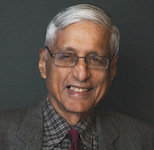Amid threats to citizens’ rights are the stories of courage that sustain us
As we approach another Independence Day, here’s a reflection. When the powerful bully the vulnerable, we’re revolted, not impressed. When the weak stand up to the mighty, we’re stirred.
Near the head of sickening developments has been the frequent pursuit by our police, after a mob has attacked a helpless individual (often a Dalit or a Muslim), not of the attackers but of the victim’s relatives named, by the mob. Arrests of journalists as they strive to report murders and rapes fall into this category. Likewise, the continuing incarceration without trial of thousands, and deaths in detention, usually unreported.
Father Stan Swamy’s death pierced the wall of silence, but that was an exception. We’ve been repelled also by election-time raids on the homes and offices of opposition politicians. As for the government’s stonewalling over Pegasus and the demolition of privacy, that has created rage more than shame.
The drive to control the customs, eating habits, and movement of the 70,000 or so men, women and children who live in the Lakshadweep chain of islands should be listed in the top bracket of actions that disgrace India’s democracy. In the eyes of the government and its supporters, the Lakshadweep population’s great if unspoken flaw is its Muslim faith. Why should India tolerate a Muslim-majority unit within its limits? That is the plain if unuttered question.
To which the answer is that units where a minority is the majority are sources of pride. India is not a Hindu rashtra. In our country, citizens of different faiths or no faith are, or at least supposed to be, equal in the rights they enjoy. Including the right to exist. The non-Hindu majorities of states or UTs like Lakshadweep, Punjab, Kashmir, Meghalaya, Mizoram and Nagaland, as also the Hindu majorities elsewhere, and minorities everywhere, should have this and other rights.
These rights flow from the law of humanity and also from our Constitution. Pride in territories we “possess” but resentment that “others” live there are the marks of colonialism at its most primitive. Also sickening, at an entirely different level, is the continuing character assassination of Rahul Gandhi and of his forebears. Rahul is an outspoken man whose father, a prime minister of the land, was killed in cold blood. As was, earlier, his grandmother, also a prime minister. And what have they not said, year after year, about her father, Pandit Jawaharlal Nehru, who was not only India’s jewel but also the nation’s unflagging servant? And about Jawaharlal’s father, Motilal?
Slanders of this sort are spread in other lands too. But when America’s social media turned Barack Obama into a Muslim, his Republican opponent, John McCain, publicly rebuked the lie. Such corrections are never offered from India’s high places, even though perpetual, direct communication from these high places to the Indian citizen has become the norm.
This is appalling, but not shocking. When stabbing to death a helpless boy on a train is not swiftly or roundly reprimanded, why would mere character-murder be condemned?
Fortunately, we’ve also been inspired by some things. Most of all, perhaps, by the exertions of the humble Indian, including in finding oxygen for a gasping Covid patient or wood for cremating a victim. By the unseen toil of helpers who almost always leave their own loved ones with someone else while assisting more fortunate compatriots.
At another level, we were thrilled by the raw courage of a single woman, a daughter of Bengal, who with her plastered foot shoved aside a gargantuan juggernaut. And thereby breathed new life into what almost looked like a sinking democracy. We loved, too, the woman celebrated as a Dadi, who became a symbol of the successful nationwide movement against threats to the citizenship of Muslim Indians.
And weren’t we uplifted by the fearless advocate who was ready to be punished by powerful judges but not prepared to swallow his conscience? More recently, and most hearteningly, we have heard strong pronouncements in favour of liberty and equality from judges of the Supreme Court, including the Chief Justice.
Most encouraging of all, however, is another sound. I don’t quite know how to describe it. It is the sound of pens, pencils, keyboards, texting fingers and cameras in tens of thousands of Indian hands. Of journalists, students, citizens and citizen-journalists in small towns and interior villages who share with fellow Indians their stories and images of coercion or courage.
Their words sometimes find their way into brave online journals, sometimes even onto pages of established newspapers. Or songs, jokes, cartoons, and even videos result from their words, and are swiftly circulated. Thanks to these active citizens, the possibility of change seems to show up on the horizon. Happily, we also have a few really brave persons even on mainline TV and in the press. Their voices sustain our morale.
“For I can see that in the midst of death, life persists; in the midst of untruth, truth persists; in the midst of darkness, light persists.”
The learned will know that these were words that Gandhi wrote in Young India long ago, on October 11, 1928. It was what he believed, but also what he saw around him. Do we see today what he saw?
